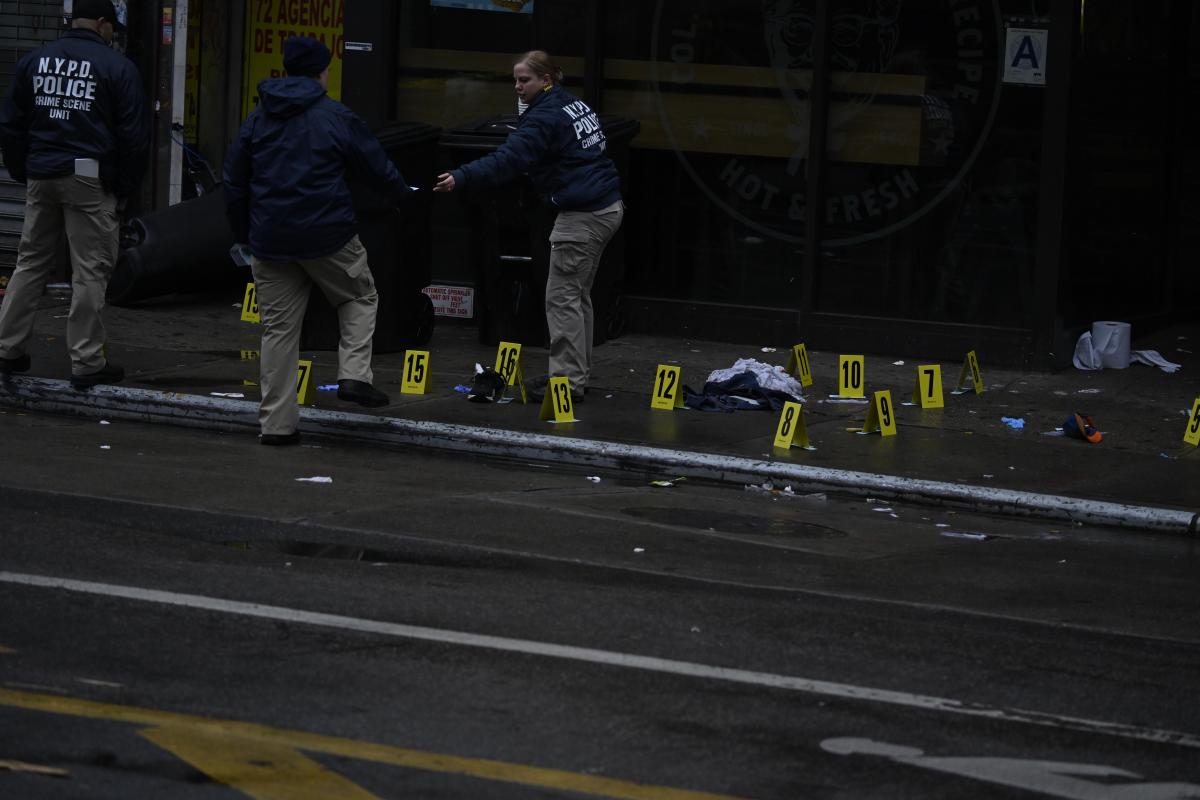By Arlene McKanic
Many who came out to the Black Spectrum Theatre Sunday evening had heard of the poet “Lindamichellebaron,” and expected a young, intense, somewhat angry young woman in dreads who would sit reading her poetry on an empty stage while some young guy drummed in the background. Indeed, when the dancers from A.R.T. In Progressive Motion burst on the stage in semi-African garb and a lovely young woman began to recite “The Drum,” many must have thought, “She's not that young, is she?”
She turned out not to be Dr. (a former teacher, she has a doctorate from Columbia University Teachers College) Baron after all. Lindamichellebaron is a woman of experience who swept onstage in a sun yellow Yoruba inspired outfit, and enthralled everyone in the audience with her defiantly upbeat but clear-minded poetry, much of it geared toward young people.
Baron performed that night not only with A.R.T. In Progressive Motion, but also with the Drummers of the Diaspora, a group of young men who are wicked on the African drums, and her brother, Herman Alexander Baron. Often the two of them sat on opposite sides of the stage at lecterns decorated with African cloth and read some of her poetry together.
Mr. Baron even put on a fedora and played a young thug in “You Talking to Me/Yes I'm Talking To You” with Dr. Baron as a reasonable grown-up.
“Weapons are your words of choice,” she accused, even as she admitted some responsibility for the young man's antisocial behavior.
These and other poems in the first part of the program largely explored issues of self-worth, such as Dr. Baron's “Hair Prayer,” in which a young girl asks the Lord to give her “good hair, just 'til after Christmas” so she doesn't have to endure her mother's hot comb.
Later, the adorable little Mia Morgan recited “A Flower,”describing the care and attention adults owe young children. Makeda Enilo recited “Daddy's Little Girl,” a celebration of the love of fathers for their daughters and their daughters' innocence, while Philip Page recited “Hugs and Kisses” with Dr. Baron, relating the tale of a little boy who persists in acting tough until he melts under the blandishments of his mother, aunt, and grandmother.
Baron and her brother later exhorted the audience to “Jump for the sun /Don't stand in place!” And in “The Sun Is On,” the kids in A.R.T. changed out of their African attire into their Sun Is Out t-shirts and danced to Faye Ivey-Jones' choreography and Harold Dudley's music.
After an intermission Baron returned, dressed this time in flowing accouterments with a color an ancient Crayola box describes as “chameleon.” The poems in this second part of the show focused on love relationships, or the lack of them. In “Refuse the Blues” she stressed an insistence on happiness even after a relationship has busted up. Her “Fragile – Handle With Care” glorifies the pied beauty of all of God's creations, especially her. “If the Shoe Fits,” or “Don't Put Your Naked Feet in Everybody's Shoes Blues,” was an oblique and humorous reference to sexually transmitted diseases.
“The Real Deal” was addressed to teenaged mothers who were sweet-talked into bed; there's nothing oblique about it, though its message in the end is positive. “I'm the Man” danced and choreographed by Renee
Bradley-Jinks, extols woman's autonomy.
At the end Baron and her performers were given a standing ovation, and she returned later on to hug and kiss nearly everyone, including the writer, and sign autographs.
“They were bad performing young people!” she said of her accompanists, meaning, of course, the opposite. Surprisingly, this was the first time they appeared with her. “But they perform everywhere, this is just the first time with me!” Baron said.
The Poetry of Lindamichellebaron was a one-time only performance that was part of the Sisters of Color Theatre/Film Festival. The show was directed by David Peters.






























